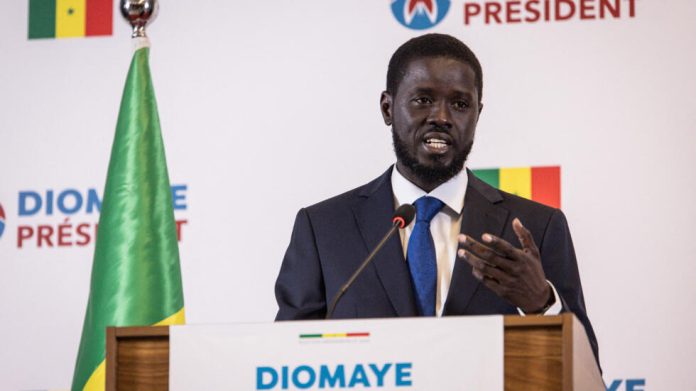Senegal’s political landscape saw a significant shift as 44-year-old opposition leader Bassirou Diomaye Faye received congratulations from incumbent President Macky Sall, indicating Faye’s likely victory in the presidential election. Faye’s rise to prominence comes less than two weeks after being released from prison to contest in the election.
According to the Senegalese News Agency, the Constitutional Council is scheduled to announce the election results on April 3rd. Faye’s main rival, a former prime minister backed by President Sall, conceded defeat based on preliminary results, a move that Faye welcomed as a testament to Senegalese tradition and sportsmanship.
Addressing supporters in Dakar, Faye expressed his commitment to humility, anti-corruption efforts, and advancing Africa’s political and economic integration. He also reassured Senegal’s international partners of the country’s reliability and commitment to cooperative engagement.
Faye’s victory reflects growing frustration among Senegalese youth with high unemployment and governance concerns. A protege of Ousmane Sonko, Faye has pledged to safeguard Senegal from corruption and foreign interference, echoing the sentiments that ignited months of unrest following his and Sonko’s arrests last year.
The election, held on March 24th, followed a period of turbulence and protests sparked by fears of President Sall seeking a third term despite constitutional term limits. The violence tarnished Senegal’s reputation as a stable democracy, with rights groups reporting casualties and mass arrests.
Faye, a former tax collector, rose to prominence under Sonko’s mentorship and emerged as his successor after Sonko’s disqualification from running due to a prior conviction. Hailing from central Senegal, Faye is a devout Muslim with a commitment to public service.
With more than 7 million registered voters in a country of roughly 17 million, Sunday’s election marked a pivotal moment in Senegal’s democratic journey. It was the first election without a sitting president on the ballot following the introduction of term limits that prevented Sall from seeking reelection.
Civil society observers, including the COSCE, reported a voter turnout of over 61%, underscoring the significance of the electoral process in shaping Senegal’s political future.

